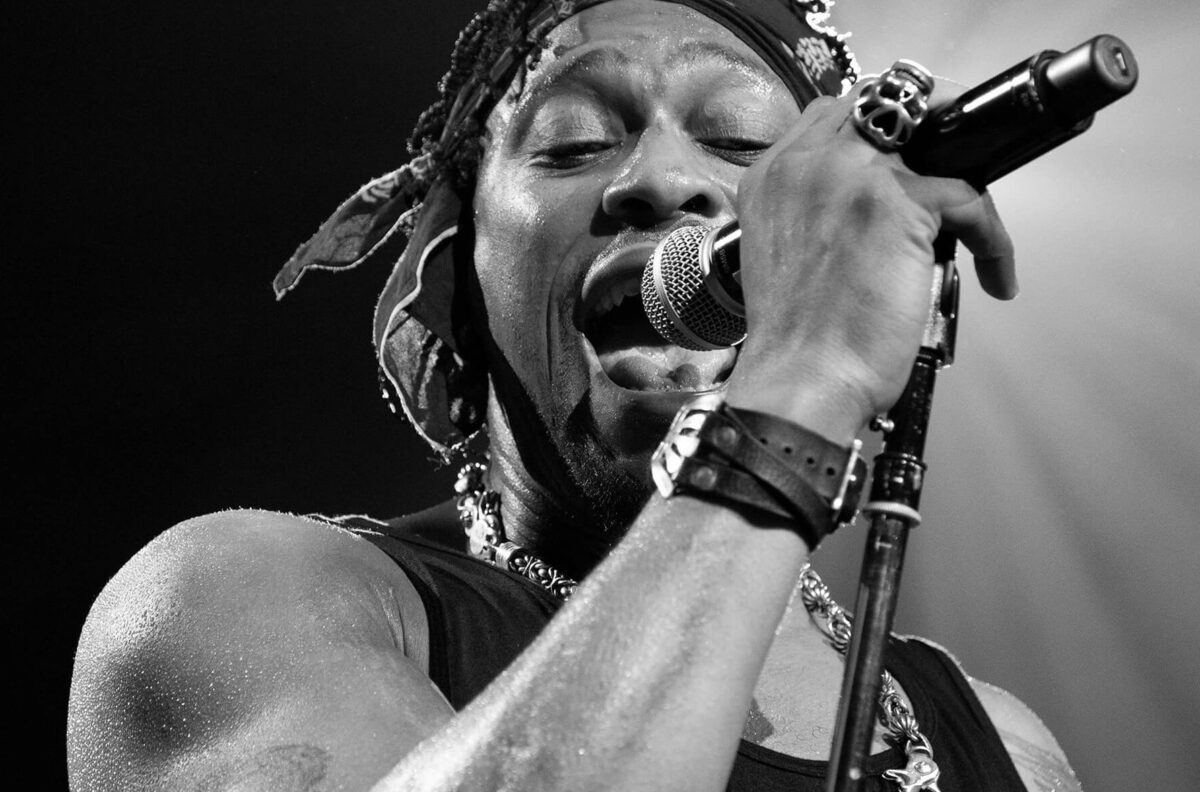What really happened to D’Angelo? Inside the life and untimely death of the Neo-Soul Legend

Neo-Soul Legend, D’Angelo. Image Credit: Modern Notoriety
Neo-soul legend D’Angelo, born Michael Eugene Archer, has passed away at the age of 51 after a private battle with pancreatic cancer, sources confirm. The singer, known for revolutionizing modern R&B with his groundbreaking albums Brown Sugar, Voodoo, and Black Messiah, leaves behind an indelible musical legacy.
Early Life: From Richmond Roots to Musical Prodigy
D’Angelo was born in Richmond, Virginia, the son of a Pentecostal minister. He began playing the piano at the age of three, performing with his father in church by age five, and later at his grandfather’s church. As a teenager, he formed bands such as Three of a Kind and Michael Archer and Precise, performing at local talent shows, which helped shape his early musical identity.
His early exposure to gospel music and structured church performances honed his natural rhythm and vocal ability. These experiences not only grounded him spiritually but also infused his music with the soulful authenticity that would later define his neo-soul sound. Friends and family have often described his childhood as filled with a strong sense of discipline and musical curiosity.
Rising to Fame: Brown Sugar and Voodoo
At 21, D’Angelo released his debut album Brown Sugar in 1995, which quickly went platinum and earned four Grammy nominations. His follow-up, Voodoo (2000), debuted at number one on both the Billboard Top R&B Albums and Billboard 200 charts. The album won a Grammy for Best R&B Album, and his hit single Untitled (How Does It Feel) won Best Male R&B Vocal Performance.
Brown Sugar and Voodoo positioned D’Angelo as a defining figure in neo-soul. His ability to combine old-school soul influences with modern rhythms created a new sound that resonated across generations. Critics praised his lyrical depth, smooth vocal delivery, and innovative approach to instrumentation, setting a new benchmark for R&B artists worldwide.
READ ALSO
John Lodge dies at 82: 10 things to know about the Moody Blues star
Black Messiah and a Triumphant Comeback
After personal struggles, including bouts with alcoholism and reclusiveness, D’Angelo returned in 2014 with Black Messiah. Released earlier than planned in response to the Black Lives Matter movement, the album blended psychedelic funk and socially conscious R&B. He toured with his band, the Vanguard, including musicians Questlove, Pino Palladino, Isaiah Sharkey, and Roy Hargrove, solidifying his reputation as a masterful live performer.
Black Messiah was more than a musical comeback; it was a statement of artistic and political consciousness. D’Angelo’s decision to release it in the wake of nationwide protests highlighted his willingness to use music as a platform for social commentary. The album’s intricate arrangements and thought-provoking lyrics reaffirmed his role as a cultural icon.
Legacy and Influence in Neo-Soul
D’Angelo’s influence on neo-soul and contemporary R&B is profound. He helped popularize a genre that fuses classic soul, funk, and modern rhythms. Artists like Erykah Badu, Jill Scott, and John Legend have cited him as a major influence. His sporadic releases created a mystique that only amplified his legendary status among fans and fellow musicians.
Beyond music, D’Angelo’s artistic philosophy emphasized authenticity and emotional depth, inspiring a generation of musicians to prioritize artistry over commercialism. His innovative approach to live performance, recording techniques, and collaboration continues to shape the neo-soul genre and R&B production standards today.
Final Days and Passing
D’Angelo quietly battled pancreatic cancer for months, entering hospice care for the final two weeks of his life. His family released a statement mourning the “shining star” of their family, emphasizing his courageous battle and the enduring gift of music he leaves behind. Tributes have poured in from collaborators and artists worldwide, including DJ Premier, Tyler, the Creator, and The Alchemist.
Fans have held vigils online and in cities where D’Angelo performed, celebrating his life and music. Social media has been flooded with tributes, highlighting the global impact of his artistry. Many fans have shared stories of how his music shaped their lives, demonstrating the lasting emotional connection he created through song.
Remembering D’Angelo
D’Angelo’s musical journey, from a church pianist in Richmond to a global neo-soul icon, remains a source of inspiration. His albums continue to resonate with fans, bridging generations and redefining what modern R&B can be. While the world mourns his loss, his songs, collaborations, and musical innovations ensure that his legacy will live on.
As music historians and critics reflect on his career, D’Angelo is recognized not only for his extraordinary talent but also for his courage to tackle personal and societal issues through art. His influence will continue to shape music education, performance standards, and the next generation of R&B innovators.
FAQ
Who was D’Angelo?
D’Angelo was a groundbreaking R&B singer, songwriter, multi-instrumentalist, and producer, widely recognized as a pioneer of the neo-soul movement.
When did D’Angelo die?
D’Angelo passed away on October 14, 2025, at age 51.
What caused D’Angelo’s death?
The cause of death was pancreatic cancer, after a private and prolonged battle.
What albums did D’Angelo release?
Key albums include Brown Sugar (1995), Voodoo (2000), and Black Messiah (2014).
Did D’Angelo win any awards?
Yes, D’Angelo won multiple Grammys, including Best R&B Album for Voodoo and Best Male R&B Vocal Performance for Untitled (How Does It Feel).
Who collaborated with D’Angelo?
Notable collaborators include DJ Premier, Questlove, Pino Palladino, Isaiah Sharkey, Roy Hargrove, and Erykah Badu.
What is D’Angelo’s legacy?
He is remembered as a neo-soul pioneer whose innovative music influenced generations of R&B and soul artists worldwide.

